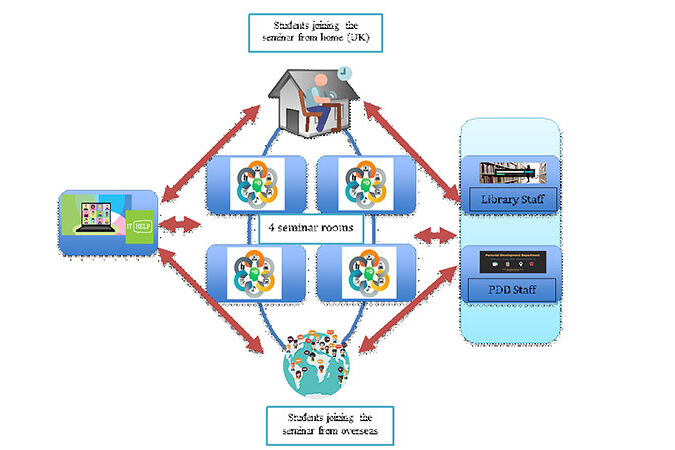
Blog Article

By adopting an ‘otherwise’ gaze as its starting point this paper advances a queer analysis of lecturers’ practices and assumptions as a politically generative exercise, opening up spaces for new ways of practising academic writing development as a ‘counter-hegemonic intervention…” (Wilton, 2009, p.507).
Across all educational sectors, an autonomous model of literacy (Street, 1984) operates as the dominant discourse informing academic writing practices. This model posits spelling, punctuation and grammar as a ‘neutral technologies’ which once acquired can be applied by individuals universally in their writing without reference to any ideological and cultural values. The autonomous model of academic writing also supports traditional transmission or knowledge exchange models of pedagogy in the academy that are instructionist, passive, teacher-directed and skills-based. Both mutually reinforcing approaches encourage universities to favour more individuated models of learning and assessment where the emphasis is on displaying subject-specific learning through a decontextualised written ‘product’. The ubiquity of autonomous approaches to academic writing in higher education means that they constitute a ‘given’, which often operates as an invisible or ‘taken for granted’ dominant discourse informing undergraduate academic writing and writing development practices (Lea and Street, 1998; Lillis, 2001). The ensuing emphasis on technical writing skills not only hinders students’ critical thinking about their subject but inhibits experimentation and any creative expression of ideas (Ivanic, 1998; Lillis 2001).
I want to explore the idea that the normalising of the autonomous model means that academic writing practices in education function as forms of regulation and conformity as they are:
[…] realised within a set of assessing, diagnostic, prognostic and normative practices (Hoskin, 1990, p.52)
As such, one can view academic writing as exerting what Foucault (1979) in The History of Sexuality terms ‘disciplinary power’. Street (2000) argues that this discursive form of power:
[…] disguises the cultural and ideological assumptions that underpin [academic writing practices, so they can then be presented as though they are neutral and universal. (p.18).
Consequently, I argue, academic writing practices in HE work to reinforce a very monocultural, non-inclusive articulation/conceptualisation of learning. This
facilitates a teaching and learning environment that fails to acknowledge the role that situated academic writing practices and different writing experiences and identities could play in the process of conveying learning, taking account of historical and institutional social and cultural factors and individual interests, perspectives and histories of the learner.
Definition of ‘to queer (someone's) pitch’
If someone or something queers your pitch, they make it very difficult for you to achieve what you are trying to do.
This session intends to ‘queer the pitch’ regarding dominant/hegemonic, autonomous academic writing practices in HE. It foregrounds how and why trying to write ‘otherwise’ is very difficult in HE due to the disciplinary power exerted by dominant academic writing practices and beliefs because they disguise themselves as ‘given’ and ‘natural’ (Are you really an academic?).
Definition of ‘queer/queerly’
- differing from the normal or usual in a way regarded as odd or strange
- suspicious, dubious, or shady
- to spoil or thwart
- to put in a difficult or dangerous position
We will explore the idea that writing queerly often makes one’s life as an academic difficult because it makes one appear difficult, odd, even suspicious. By writing ‘otherwise’, one will put oneself and one’s work in a difficult or dangerous position. (Is this really academic writing?)
Definition of pitch
- A form of words used when trying to persuade someone to buy or accept something
- An area of ground marked out or used for play in an outdoor team game.
Part of writing queerly is to understand the context (the disciplinary ground marked out) in which you are writing (pitching your ideas) in order to break loose from its confines. (You need to find your academic voice.)
Finally ‘queering the pitch’ in academic writing reflects my firm belief that the relationship between higher education academic writing practices and those who engage in them should be one of celebrating the possibilities of difference. This notion of difference can be expressed in many ways through academic writing; in the production of interesting and innovative academic texts, in the use of critical pedagogies or via alternative curriculum design and/or methods of assessment. An instance on difference reminds us that as Sara Ahmed (2019, p. 225) states:
When you draw upon what does not fit, what is slant-wise or bent, you draw a different world.
Thus, queering the pitch through one’s academic writing is to participate in the vision of the CSPACE conference, namely, to produce and re-cognize novel imaginaries, ‘modes of study’ and ‘world-making’ that are not only alternative to the dominant - institutional, linear, hierarchical, romanticized - education-based mode, but often located outside and against the institution.




